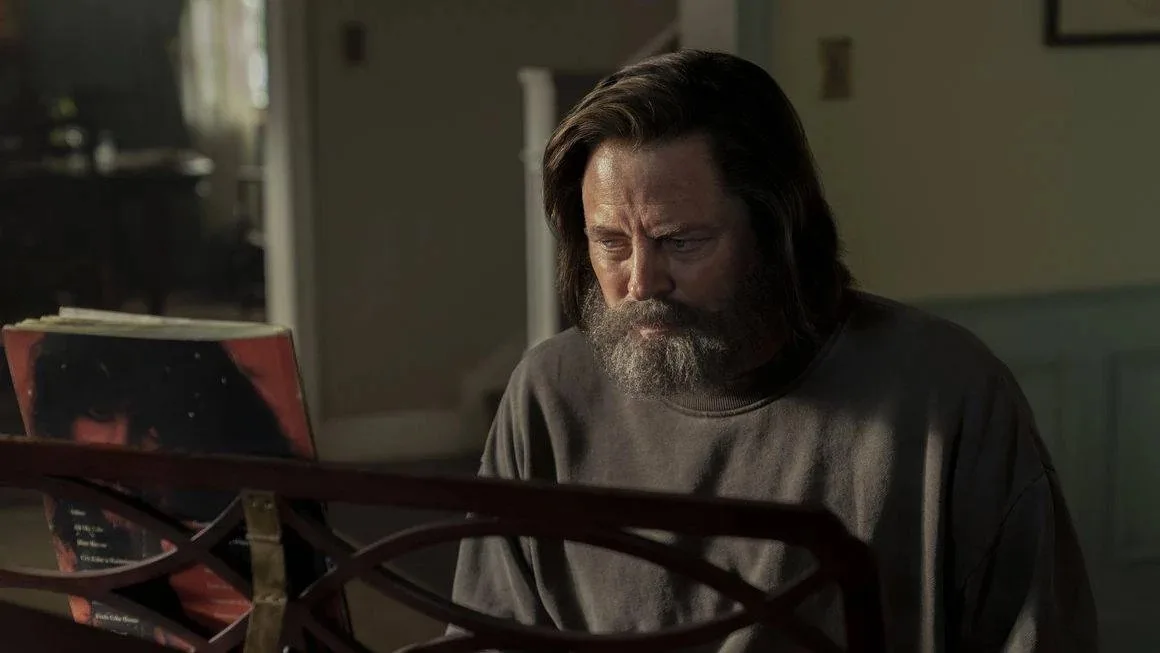Through its first few episodes, HBO’s The Last of Us has concretely established a few key elements of its structure and tone, portraying a broken world of broken people, what nascent sense of shared humanity left between them depicted via ration cards, worn-eyed looks of longing and regret for what might’ve been. Save for a few playful bits of dialogue, The Last of Us has reveled in its dilapidated world – and in particular, the misery of those who yearn for any semblance of a normal life. “Long Long Time”, despite its setting and focus away from the main narrative arc, fits neatly within these lines: there’s no arguing how well-crafted and performed this episode is, but to suggest it is 80 minutes running against the grain of its own pathos, would be a little more than dishonest.
Bookended by scenes of Joel and Ellie arriving in Lincoln, “Long Long Time” is the story of Bill (played here by Nick Offerman, and memorably by W. Earl Brown in The Last of Us Part I), a survivalist who embraced the opportunity of the apocalypse to put his skills to use, and live out his days in quiet, peaceful solitude. But when he finds a man named Frank trapped in the pits outside of his electrified security gates, that facade of contentment quickly falls away (I mean – whose wouldn’t after four years without a human conversation?) and Bill is revealed to be severely depressed and lonely, even amidst his anxiety around letting someone in his compound.
Very obvious visual metaphor aside, how “Long Long Time” builds a life for Bill and Frank (Murray Bartlett, in his first post-White Lotus HBO appearance) makes for a compelling love story. Checking in with them every three years, The Last of Us observe the pair during familiar moments of domestic life: bickering over aesthetic decisions, enjoying the company of a few friends (Joel and Tess, the latter of whom Frank meets over the radio and invites to their home) – and of course, defending everything they’ve built from a group of faceless raiders and nearly dying from it.

